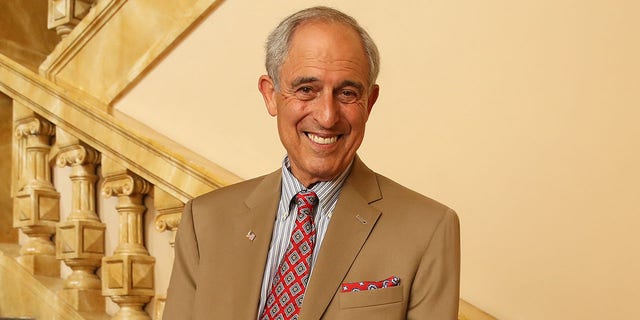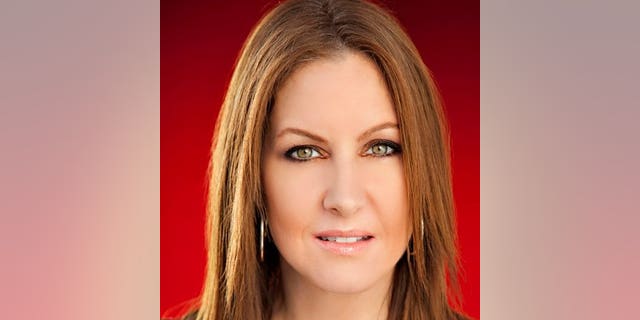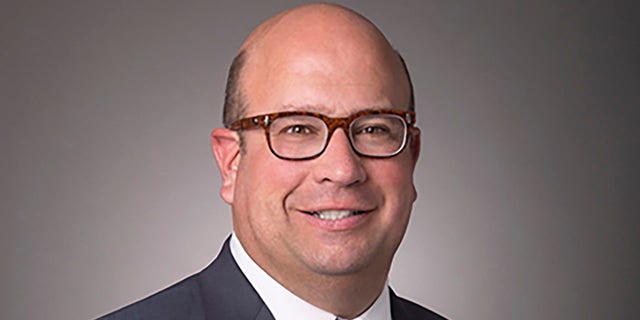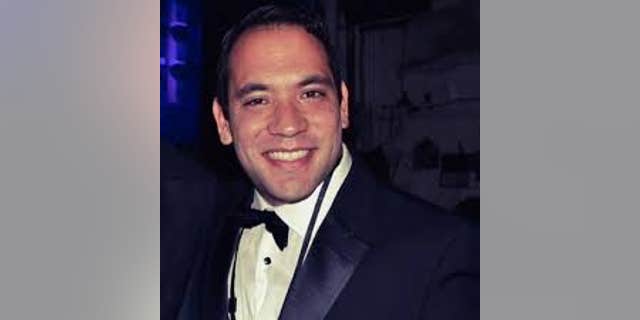Strategists warn election meddling, promotion of certain GOP candidates could ‘backfire’ on Democrats
Several key elections in states across the country are taking shape as Democrats aim to retain control of the House and the Senate by spending millions of dollars in GOP primary elections to back Republican candidates they see as easy targets in general election matchups.
In Illinois, Democrats spent millions attacking African-American Mayor Richard Irvin, who was the establishment favorite on the Republican side for the governor’s race last month. He lost that GOP primary in a landslide to state Sen. Darren Bailey, whom Democrats view as extremely conservative and an easier target in an election against incumbent Democrat Gov. J.B. Pritzker in November.
In the Senate race in Colorado, a state President Biden won by more than 13 points, an outside Democratic super PAC spent about $1 million in ads that pointed out the conservative stances of one candidate, state Rep. Ron Hanks, highlighting his America First values and questioning Biden’s election victory. Hanks lost the primary election to construction company owner Joe O’Dea, who is seen as the more electable Republican candidate in a swing state like Colorado.
Last month, Maryland gubernatorial candidate Kelly Schulz lashed out at the Democratic Governors Association for promoting her top rival, state Delegate Dan Cox, whom she called a “fringe” and “unelectable” candidate. “The Democratic Governors Association decided to spend nearly $1 million to help Dan Cox. They’re only doing this and meddling in our primary because they know that I am the only Republican who can win in November,” Schulz said on Twitter.
MEDDLING BY DEMOCRATS MAKES A MARK IN GOP GUBERNATORIAL PRIMARY IN ILLINOIS, FALLS FLAT IN COLORADO
To better understand how efforts like those outlined here have an impact on primary races and the upcoming midterm elections, Fox News Digital contacted political experts from both sides of the aisle to get their assessment.
Lanny Davis, co-founder of the law firm Davis Goldberg and Galper, which specializes in media and crisis management:
“I don’t like deception in politics and I don’t like manipulating voters and by subsidizing the party’s worst candidates in hoping they win a primary … that strikes me as deceptive and manipulative and I don’t like the object of that. On the other hand … since the need is so great to defeat Trump and his co-apologists for the insurrection and defenders of the big lie, it is in the public interest…”
“Since the public interest is so great in exposing this threat to our democracy, I like the idea of helping Republican nominees get nominated who will try to defend the indefensible. So that means, if necessary, subsidizing the worst defenders of the big lie and of Donald Trump and encouraging them to be the Republican nominees so we can repudiate the big lie and the Trump comparability in the insurrection.”
“Those are my conflicts between a deceptive, a manipulative tactic versus the public interest in exposing Donald Trump and his complicit candidates still endorsing the big lie that he won the election. I lean in favor of the public interest in exposing the big lie and the danger to our democracy represented by these Republican candidates who are endorsing Trump and the big lie, but it’s a close call.”

DEMOCRATS ‘MEDDLING’ IN GOP PRIMARIES HOPING TO NOMINATE UNELECTABLE REPUBLICANS
Dallas Woodhouse, executive director of the South Carolina Policy Council:
“Both parties have engaged in shenanigans like this in the past, but mostly to force the leading opposition party candidate to waste time and money. Spending millions trying to handpick your opponent is at a minimum perilous if not downright dangerous.”
“Be careful what you wish for: That “easier” more “toxic” candidate may well be elected to office. The Democratic Party does its voters no favors by helping elect the least qualified candidate of the opposition party. At one time didn’t Democrats think that was Trump?”
“People donate to candidates and political parties to help elect candidates that inspire them and whose public policies they agree with. For the Republican Party or Democrat Party to spend their donor’s money to elevate a candidate of the other party is dishonest and fraudulent. Spitting in the face of the voters: Tactics like this show your party can’t compete in the marketplace of ideas. It shows the pure weakness of your candidate and their positions. If your candidate is not as good, your public policies are not as popular or your record as an incumbent is weak, you are supposed to lose and fight another day. Not spit in the face of the voters. Nobody likes a sore loser, but these shenanigans make a losing side, sore losers before they have even lost.”
“A bedrock principle of America’s two-party system is each political party being able to nominate the candidate of their choice to present to voters. If a political party believes the opposition party is soiling that process, they will change how nominees are selected. Political parties will forgo primaries for nominating conventions. In South Carolina 370,000 Republicans helped select the party’s candidate for Governor. If South Carolina Republicans were to choose their nominee at the State Convention, only a couple of thousand people would take part in the selection process. In the current political environment with Democrats so weak in the American south, those two thousand GOP volunteers would in effect be deciding the Governor for a state of more than 5 million. Other states could choose to close their primaries to unaffiliated voters. Should the manipulation continue, political parties will respond with rules that reduce participation in our democracy and move us back to the smoke-filled rooms of old. A shameful result forced on citizens by failing political parties and candidates who simply are not good enough to earn enough votes on their own.”
“One of my close friends, a Democratic campaign consultant, taught me a valuable principle in politics. Don’t get too cute. Too cute in politics will always fail.”

REPUBLICAN GUBERNATORIAL CANDIDATE IN MARYLAND KNOCKS DEMOCRATIC GROUP FOR MEDDLING IN STATE’S GOP PRIMARY
Leslie Marshall, Democratic strategist and Fox News contributor:
“Politicians, both Democrats and Republicans, have been pumping money into races for seats they think they can flip for a couple of decades now. In this case, it’s supporting pro-Trump candidates who are polarizing and extreme. Democrats hope to face these individuals in the general primary and feel they’ll be an easier candidate to beat – perhaps in flipping a red seat blue.”
“It is risky and can fail/backfire, but we saw it succeed in 2012 for former Senator Claire McCaskill. It could give Dems some gains, especially with more Republicans souring on Trump since the January 6th committee hearings, according to the polls. If polls show a district is more likely to reject extremism, Democratic PACS will take out their checkbooks.”

Charles Spies, attorney at the law firm Dickinson Wright and former election law counsel to the RNC:
“Then-Sen. Clair McCaskill perfected this tactic in her 2012 Senate race where she spent money promoting unelectable Republican candidate Todd Akin in the Republican primary, and then went on to defeat him in the general election…and brag about what a smart tactic this was in her book afterwards.”
“This cycle, Democrats are dragged by the Biden economy and playing defense almost across the board. Even in a state like California, the current appointed Attorney General Rob Bonta was apparently so worried about facing Republican Nathan Hochman that Bonta’s team spent over $1 million trying to elevate a less electable Republican opponent. The ploy didn’t work and Bonta and Hochman are facing off in November, with mainstream prosecutor Hochman vs. Bonta defending non-prosecution policies. The cynical pick-your-opponent scheme did work for Democrats in the Pennsylvania Governors race where they effectively promoted a less electable Republican through the primary election and now national Republicans have largely walked away from the general.
“As a matter of strategy, if spending $1 million in the primary accomplishes an unelectable opponent that saves spending $10 million in general, then it’s a good investment. That being said, it is outrageous for a party that has occupied six months on a self-described moral high ground investigating Republicans even tangentially tied to January 6th to be running ads promoting more extreme candidates against moderate Republicans. Speaker Pelosi has lost the right to ever criticize Republicans for being extreme after her team at House Majority PAC ran ads promoting Chris Mathys as the ‘real MAGA candidate’ against mainstream Republican David Valadao.”

Jose Aristimuño, former deputy press secretary for the DNC:
“If there is confidence that the voters in that specific primary are going to reject the extremism of that specific candidate then elevating them could prove to be a smart strategy for Democrats. However, you have to keep in mind that there is risk in this, being that if it’s a race where a Trump candidate has a better chance of getting elected than a more moderate one, then it could prove to play against Democrats later on, so you have to look at this strategy on a race-by-race scenario.”
“One has to remember that what makes him a candidate attractive in a Republican primary might make him unelectable with independent voters in a general election.”

The comments provided to Fox News Digital in this article are part of a new weekend series where strategists from across the political spectrum are asked the same question related to political hot topics and are provided with an opportunity to offer their perspective.
Fox News’ Paul Steinhauser contributed to this report.
Read the full article Here


